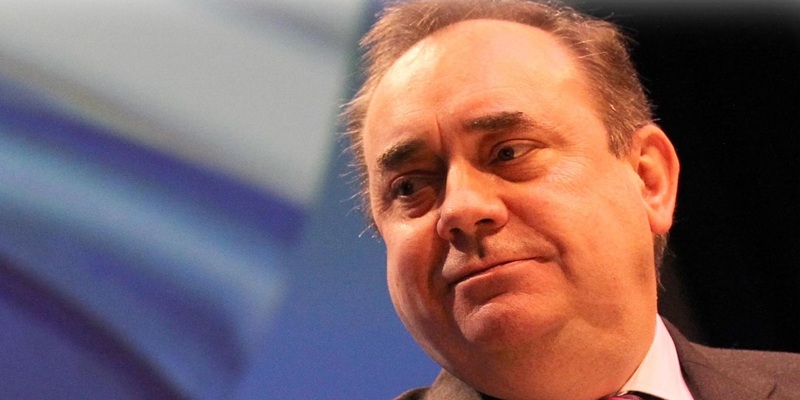More funding will be needed to meet new energy efficiency targets unveiled by the Scottish Government, it has been claimed.
First Minister Alex Salmond announced £10 million of grants will be given to councils to offer free insulation and energy saving advice to 100,000 Scottish homes under the Energy Efficiency Action Plan, on Tuesday.
This aims to reduce energy consumption 12% by 2020.
Although environmental groups welcomed the plan, they said it lacks funding and detail.
Speaking at the Energy Advisory Board meeting in Edinburgh, Mr Salmond said, “Scotland is well positioned to power the low carbon economy, harnessing our vast renewables potential.
“Just as we will be at the vanguard of the renewables revolution, we must also help lead a revolution in energy efficiency tackling demand and improving the efficiency of our homes, transport systems and energy use right across the public and private sectors.”
The Scottish Government has set ambitious energy targets for the next decade.
As well as reducing consumption levels, it wants to reduce the country’s carbon emissions by 42% and generate 80% of all electricity from renewable sources by 2020.
It is estimated that improving household energy could shave around £2 billion off the country’s power bill.
“Energy use is responsible for the major share of greenhouse gas emissions, contributing to climate change,” said Mr Salmond.
“The £10 million of grants I’m announcing today will help local authorities provide advice and offer free insulation and other energy saving measures.
“It will help thousands of families to cut their fuel bills by an average of £50 a year and builds on previous investments, including the £15 million discounted and free insulation scheme announced earlier this month.”
Environmental groups called for stronger legislation to support the plan.
“We welcome the firm target but to deliver or even exceed it will need up-front investment,” said Duncan McLaren, chief executive of Friends of the Earth Scotland.
“If the government cannot provide the cash then it must use regulation to require action…
“Funding must come at low interest rates that allow householders and businesses to pay loans off through the savings they make on energy bills.
“A lot of energy has been wasted in the six years since an Energy Efficiency Action Plan was first promised.”
WWF Scotland director Richard Dixon said details of the scheme remain sketchy.
He said, “Action on energy efficiency should be our first priority in our battle to reduce climate emissions, create jobs and eradicate fuel poverty…
“The Scottish budget in November must deliver on energy saving if the plan is to live up to its potential.”
Ian Marchant, convener of Scotland’s 2020 Climate Group, said, “There are major economic opportunities for business and jobs in Scotland from energy efficiency services and products, but we have to remember two things.
“First, energy efficiency is about heat and transport, as well as power. Second, plans are good but delivery is what matters and that is the test that we must all now pass.”
However, Scottish Labour energy spokesman Lewis MacDonald described the energy efficiency plan as “too little, too late.”
“The SNP are failing to raise the roof when it comes to setting the standards for new energy efficient homes,” he said.
“Scottish ministers should have moved much more quickly to put in place an Energy Efficiency Action Plan and set a more ambitious target for improving household energy efficiency.”
Fuel poverty charity Energy Action Scotland believes the publication of the plan marks an important step forward in addressing the need to make Scotland’s homes more energy efficient.
However, its director Norman Kerr said fuel poverty is still a concern.
“It is heartening that the Scottish Government has listened to much of what we and other stakeholders have been telling them about the urgent need to improve domestic energy efficiency and specifically to help those in fuel poverty,” he said.
“However, the challenge will be to turn the intentions of the plan into action and ensure that the government’s aspirations will be delivered.
“As the government acknowledges, the problems faced by many in fuel poverty because of a combination of low incomes and energy inefficient homes continue, with a real fear of being cold over the winter, and programmes for those most in need must be stepped up in the short term.”
The Scottish Federation of Housing Associations (SFHA) has welcomed the action plan’s launch and said housing associations have the energy to tackle housing emissions, but again said more action from the government is required.
Chief executive Mary Taylor said, “The SFHA welcomes the launch of the plan and acknowledges that climate change and fuel poverty are huge challenges for housing associations and Scotland as a whole.
“Reducing emissions from the housing sector is crucial to combating climate change.
“Our members have a strong track record of innovation and leadership in energy efficiency, whether pioneering community renewable schemes, or building new homes to the highest standards of energy efficiency.
“The SFHA and its members are keen to work with the Scottish Government and other partners to meet the challenge set by our emissions reduction targets.”
However, she added that it was important to acknowledge that the action plan while rightly ambitious came at a time of budget cuts as housing associations were being asked to develop new build housing with lower levels of funding.
“It is vital that the right funding and support is in place to allow our members to increase energy efficiency in their houses and meet these targets, and we look forward to working with the UK and Scottish Government to ensure that this is the case,” she added.
Energy Action Scotland plans to work with government at all levels and, through the Scottish Fuel Poverty Forum, to assist in meeting the targets set.
